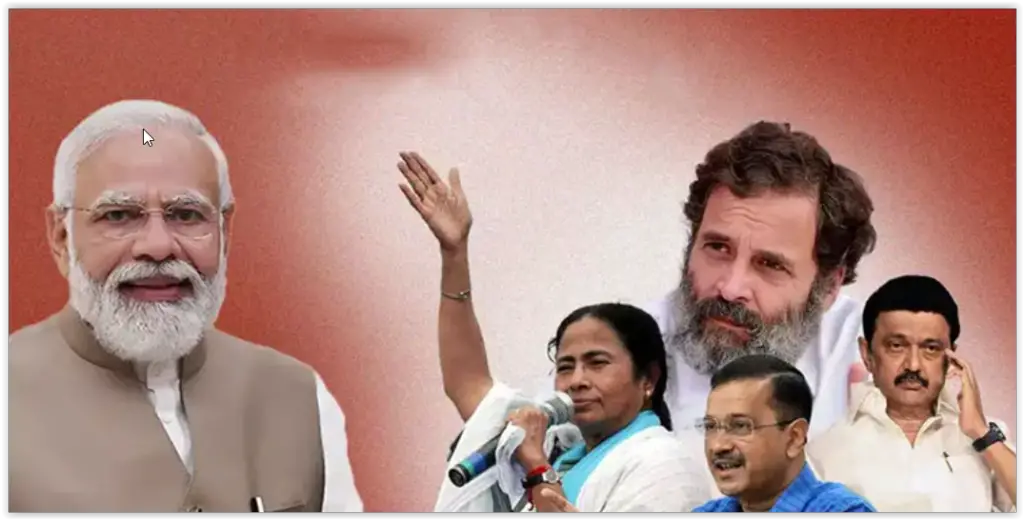As India gears up for its national elections, a catchphrase has emerged, promising the electorate a future secured by Prime Minister Narendra Modi. The slogan “Modi ki guarantee” (Modi’s guarantee) has become a central theme in the Bharatiya Janata Party’s (BJP) campaign, contrasting itself against a fragmented opposition. However, this phrase has not been exclusive to BJP advertisements alone.
Dual Campaigns and Shared Slogans
Starting in November, alongside the BJP’s campaign, another remarkably similar slogan appeared: “Modi sarkar ki guarantee” (Modi government’s guarantee). Funded by the Central Bureau of Communication (CBC), the Indian government’s advertising arm, these ads often mirrored the BJP’s themes. For instance, an ad aired on February 23 showed a young entrepreneur reassuring his father about career prospects, crediting Modi’s promise of making India a hub for unicorn startups. The ad boldly proclaimed that every startup would originate in India, thanks to “Modi’s guarantee.”

Public Funds Under Scrutiny
These government-funded ads, as revealed by an investigation, cost taxpayers nearly 387 million rupees ($4.65 million) over four months. This spending spree positioned the CBC as the largest political advertiser on Google during this period, even surpassing the BJP’s expenditure of 314 million rupees ($3.7 million). The primary opposition party, Indian National Congress, spent significantly less—275 million rupees ($3.3 million) over six years.
The opposition parties, including the Congress and the Aam Aadmi Party (AAP), have accused the BJP of using public funds for electoral advantages, alleging that these CBC advertisements violate election rules. On March 22, Congress formally complained to the Election Commission of India (ECI), questioning the integrity of government institutions in maintaining a fair electoral process.
Historical Precedents and Growing Challenges
The BJP’s strategy is not unprecedented. In 1975, Prime Minister Indira Gandhi was disqualified from office for misusing government machinery for campaign purposes. Transparency watchdogs like Common Cause have long petitioned for stricter regulations on government advertising, a call that has gained urgency with each election cycle. Despite the Supreme Court’s guidelines in 2015, which prohibit government ads from serving political interests, enforcement remains lax.
Expansion of Government Advertising
In a notable move in May 2023, the Modi government increased the CBC’s budget by 275 percent to 7.5 billion rupees ($90 million) and introduced a new Digital Advertisement Policy. This policy allowed the CBC to shift its advertising focus to digital platforms like Google and YouTube. Consequently, digital political ad spending surged dramatically, reflecting a broader trend in the 2024 elections.
The Influence of Digital Media
According to a 2023 survey by the Google News Initiative and Kantar, YouTube has become a dominant source of news for Indian internet users, making it a prime target for political advertising. The CBC capitalized on this trend, allocating more than 90 percent of its ad spend on videos, significantly influencing public perception ahead of the elections.
Calls for Reform
Experts and former officials argue that more robust regulations are necessary. SY Quraishi, a former Chief Election Commissioner, emphasized the need for a ban on government ads with political connotations six months before elections to ensure a level playing field. However, such proposals have repeatedly been ignored by successive governments.
Conclusion
The use of public funds for political gain poses a significant challenge to electoral integrity in India. As the Modi government continues to leverage its substantial majority, the calls for transparency and accountability in political advertising grow louder. Ensuring a fair electoral process requires stringent oversight and a commitment to uphold democratic principles, irrespective of the ruling party.